Army and state in Pakistan. Part of 1. The formation of the Pakistani army and its political approval
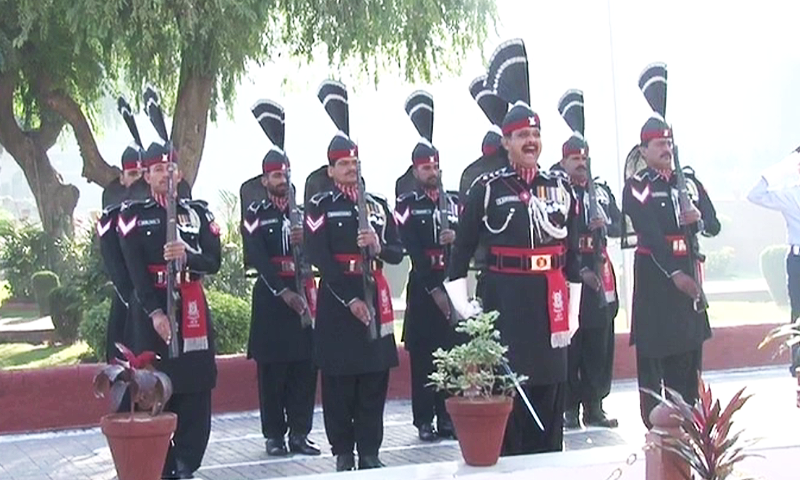
Almost from the very beginning of political stories Pakistan’s armed forces began to play a crucial role in the life of the country. Their influence on political processes is very great, to a certain extent Pakistan reminds these of Turkey and Egypt. However, it should be remembered that, unlike Egypt or Turkey, Pakistan is much less secular. Islam is not just a religion, but the state ideology of Pakistan, defining the specifics of the political development of this country. After all, unlike Turkey or Egypt, Pakistan was originally created as an Islamic state, designed to embody the political interests of Muslims of India. The official name of the country - the Islamic Republic of Pakistan - speaks for itself, as the national flag, and the name of the capital - Islamabad.
If it were not for Islam, Pakistan as an independent state simply would not exist. After all, the very meaning of its creation was to provide Muslims of British India with the opportunity to live in their own state, in accordance with their religious and political traditions and ideas. As the Pakistani scholar Vahiz Uz-Ziman said, without Islam, the Turks will remain Turks, the Persians will be Persians, the Arabs will be Arabs, and who will the Pakistanis remain? And these words perfectly reflect the essence of Pakistani identity. After all, Pakistan is, in fact, an association of regions and peoples with their own languages, ethnicity, history, and political traditions. The Punjabis, Kashmiris, Sindhis, Baluchis, Pashtuns - the only thing that unites them is the Muslim religion, and it is on its basis that the political identity of Pakistani society was built.
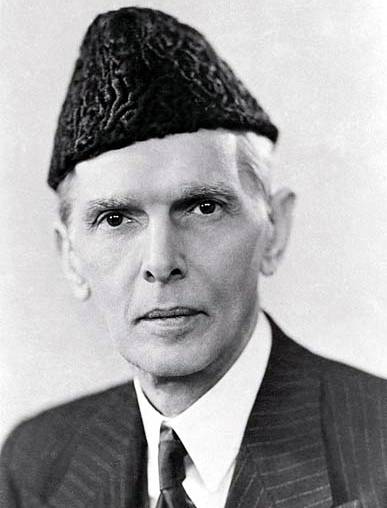 The very need to create an independent state for Muslims in the fragments of British India was based on the fact that in Hindustans Muslims, despite their large number, constituted a percentage minority in relation to the Hindu population. If a single state were created, Muslims would be doomed to a subordinate position; they would never be able to ensure the promotion of their candidates for top positions. Therefore, at the beginning of the twentieth century, the All-India Muslim League was created, at the origins of which stood Muhammad Ali Jinn (1876-1948, in the photo) - the true founding father of Pakistani statehood. It was he who put forward the concept of "two nations", which implied the creation of two Indian states on a confessional basis - Hindu and Muslim on the Indian subcontinent. Jinna believed that on the Indian subcontinent there are only two nations - Muslim and Hindu, which, in turn, unite many nations and ethnic groups whose cultural traditions are based either on Islam or Hinduism (the latter included both Jains, Buddhists, and Sikhs).
The very need to create an independent state for Muslims in the fragments of British India was based on the fact that in Hindustans Muslims, despite their large number, constituted a percentage minority in relation to the Hindu population. If a single state were created, Muslims would be doomed to a subordinate position; they would never be able to ensure the promotion of their candidates for top positions. Therefore, at the beginning of the twentieth century, the All-India Muslim League was created, at the origins of which stood Muhammad Ali Jinn (1876-1948, in the photo) - the true founding father of Pakistani statehood. It was he who put forward the concept of "two nations", which implied the creation of two Indian states on a confessional basis - Hindu and Muslim on the Indian subcontinent. Jinna believed that on the Indian subcontinent there are only two nations - Muslim and Hindu, which, in turn, unite many nations and ethnic groups whose cultural traditions are based either on Islam or Hinduism (the latter included both Jains, Buddhists, and Sikhs). However, when the independence of Pakistan was proclaimed in 1947, the young country immediately embarked on the path of open confrontation with India. The reason for this was territorial disputes, primarily for Kashmir. This high mountain region is populated by both Muslims and Hindus. For Pakistan, it is of strategic importance, since it is in Kashmir that the main water resources feed the agricultural areas of the Pakistani “breadbasket” - the province of Punjab. In addition, Kashmir Muslims were not originally going to be part of India, although the Maharaja of Kashmir, a Hindu by religion, was going to include the region in the Indian state. The subsequent history of Pakistan and India is a story of incessant hidden or open confrontation, several wars, a large number of local armed conflicts, and subversive activities in each other’s territory. Naturally, in such a tense situation both Pakistan and India pay special attention to the development and strengthening of their armed forces.
The division of British India into India and Pakistan envisioned appropriate transformations in the former armed forces of British India. They were supposed to be divided between India and Pakistan, with most of the weapons and personnel left behind by India. In both the Indian and Pakistani armies, in the first stage of their existence, many British generals and officers served. But when the Pakistani leadership was confronted with the reluctance of British advisers to fight against India, in the army of which their compatriots — the British, with whom they served in the colonial forces — were taken, the decision was made to “nationalize” the armed forces. Strengthening the army and turning it into a powerful tool of foreign and domestic policy, thus, was dictated by the development of the Pakistani state itself in the second half of the twentieth century.
As in Turkey or Egypt, the army in Pakistan is one of the most westernized institutions in society. Admission to military service in the colonial era meant for the young man a certain separation from the traditional habitat and communication. He found himself in a multinational army environment, which was dominated not by religious dogma and tribal traditions, but by military regulations. After independence, the army retained its stronghold of secular tendencies in Pakistani society. Of course, unlike Turkey, the Pakistani armed forces never took a course towards the secularization of society and, in general, remained loyal to the political ideology that, since independence, has determined the political face and political future of the Pakistani state. But, nevertheless, it was the army that ultimately had to block the initiatives and actions of the most radical part of the Pakistani Islamic circles.
The army, especially in the first decades of the existence of sovereign Pakistan, was the institution that cemented and rallied a very complex and differentiated Pakistani society. Unlike many other countries of the East, in Pakistan, firstly, there is no titular nation — the Punjabis, Pashtuns, Baluchis, Sindhis, Braguis, and other nations of the country have their own languages, culture, traditions, respectively, and political ambitions. In the 1970s, the ethnic identity and ambitions of the Bengali population of East Pakistan led to a large-scale war and the emergence of an independent state of Bangladesh. Today separatist sentiments are active in Balochistan, and in areas densely populated by Pashtun tribes, the Pakistani government has difficulty controlling the situation. Secondly, in Pakistan there have always been a very strong social and cultural gap between the upper part of society — the large and middle bourgeoisie, the military and political elite, the intelligentsia, and the majority of the population. The elite to a more secular model of governance, while the broad masses of the population living in poverty supported a radical part of the fundamentalists who spoke not only under religious, but also under social slogans. Under these conditions, the army became the institution that could not only by force suppress public discontent, but also ensure the cooperation of various groups of Pakistani society.
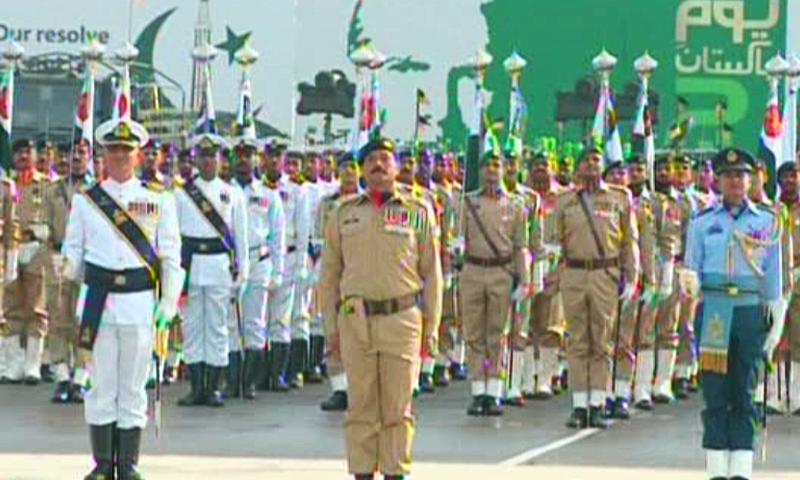
As in many countries in Asia and Africa, serving in the armed forces is a social elevator for an ordinary Pakistani. Making a military career as a native of the popular environment in Pakistan is easier than getting a good civil education and building a career in business, science or culture. Of course, representatives of the Pakistani military elite for the most part also come from influential and status families, but it is still easier for a person from the people to get a senior officer's rank in the army than to become a sought-after lawyer, a university professor, or a famous doctor. Natives from the lower strata of Pakistani society and natives of remote areas in the army receive not only military specialty - they perceive more Westernized behaviors and value systems, moving further away from tribal traditions.
The Pakistani military elite has a complex relationship with religious fundamentalists. The first decades of Pakistani history were characterized by a considerable distance between military and religious circles. The Pakistani officers, who inherited the traditions of the colonial troops of British India, were the most secularized part of society and adhered to the "European" (by the standards of Pakistan, of course) way of life. In turn, the religious circles rather negatively perceived the activities of the secular elite of Pakistan, including the military elite, because they considered it to be extremely wrong and dangerous for the country to move away from Islamic principles of governance and socio-political organization. However, in the 1950s, the ideas of fundamentalists were not popular either among the elite or among the majority of Pakistani youth. The euphoria over the creation of an independent state, military confrontation and rivalry with neighboring India focused the country's population more on the values of modernization and the construction of a strong modern state. The situation began to change gradually in the 1960s, when the unresolved social and economic problems became apparent. In addition, important changes in the foreign policy sphere began at the same time. Pakistan became the most important US ally in the region, and then China became a key military partner of Pakistan, concerned about the growth of India’s economic and military potential. It was the American and Chinese military assistance that played a crucial role in strengthening the Pakistani armed forces.
American political influence in Pakistan began to strengthen in the late 1950-s, when General Ayub Khan came to power in the country. The first decade of its existence, the country had the status of an independent dominion in the British Commonwealth. Governor of Pakistan Governor-General. The first governor-general was Muhammad Ali Djinn - a theologian and philosopher, the developer of the concept of Pakistani statehood. He was replaced by Khawaja Nazimuddin, also a civilian politician who served as governor-general in 1948-1951. The third governor-general of Pakistan, Ghulam Muhammad, who led the country in 1951-1955, was also civil.
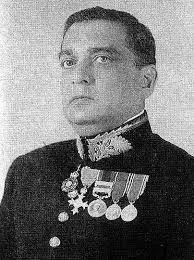 In 1955, the first officer in this post, Major General Sahibzada Said Iskander Ali Mirza, became the fourth Governor-General (pictured).
In 1955, the first officer in this post, Major General Sahibzada Said Iskander Ali Mirza, became the fourth Governor-General (pictured). Received a military education, Iskander Mirza served in the military department of British India, and after the proclamation of independence of Pakistan became the first defense minister of the country. It Iskander Mirza in 1956, changed the Constitution of Pakistan, eliminating the post of governor-general and introducing the presidency. Thus, the first president of Pakistan became a native of military circles. October 7 1958, General Iskander Mirza issued a decree dissolving parliament and imposed martial law. General Ayub Khan was appointed commander-in-chief of the armed forces, but he refused to follow the orders of Iskander Mirza and forced the first president of Pakistan to leave the country for good. So in Pakistan there was the first military coup in its history.
The state-headed Mohammed Ayub Khan (1907-1974), a Pashtun by ethnicity, was hereditary military. His father served in the British colonial forces, and Ayub Khan himself graduated from the Royal Military School in Great Britain and also served in British Indian units. He began his service in the 14-m Punjab Infantry Regiment, during the Second World War he received the rank of lieutenant colonel and colonel, commanded the regiment in the territory of Burma.
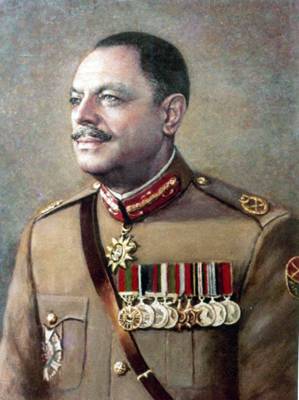 By the time Pakistan became an independent state, Ayub Khan was the highest-ranking Muslim officer in British India — a 40-year-old Pashtun wore a brigadier general and headed a brigade stationed in Waziristan, in the North-West Frontier Province. In the army of independent Pakistan, Ayub Khan immediately received the rank of Major General and was appointed commander of the 14 Division in East Pakistan (now Bangladesh), and in 1949 he headed the Eastern Command of Pakistan Armed Forces.
By the time Pakistan became an independent state, Ayub Khan was the highest-ranking Muslim officer in British India — a 40-year-old Pashtun wore a brigadier general and headed a brigade stationed in Waziristan, in the North-West Frontier Province. In the army of independent Pakistan, Ayub Khan immediately received the rank of Major General and was appointed commander of the 14 Division in East Pakistan (now Bangladesh), and in 1949 he headed the Eastern Command of Pakistan Armed Forces. It was during the years when Muhammad Ayub Khan was in power that Pakistan became one of the key outposts of American military and political influence in South Asia. Under Ayub Khan, Pakistan joined the Baghdad Pact, then the CENTO and SEATO blocks. During the reign of Ayub Khan, the army established full control over the country's political life. Strengthening the influence of the army, Ayub Khan pursued an aggressive foreign policy. In 1965, the war began with neighboring India. However, it not only did not become victorious, but also led Pakistan to serious new political problems. First, the United States in the war refused to provide military assistance to Pakistan. Secondly, communication between West and East Pakistan was broken, which only aggravated the contradictions between the two regions. Finally, the economic situation in the country has deteriorated. As a result, by the end of the 1960-ies in Pakistan began a serious political crisis. By this time, Ayub Khan himself became seriously ill and could no longer control the political situation in the country and hold power in his hands. Ayyub Khan's big mistake was the separation in his time of the posts of president and commander-in-chief. After becoming president and refusing the post of commander-in-chief, Ayub Khan deprived himself of the levers of command of the army. In 1969, he was forced to transfer power to the military elite.
Продолжение следует ...
Information